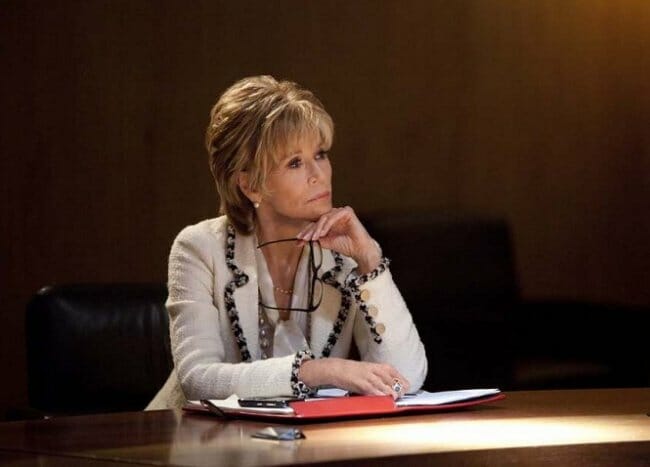The Newsroom: “The Blackout, Part I” (Episode 1.08)

One of The Newsroom’s many unique traits and challenges is how incredibly dense the individual episodes are. Even for the network that produces and airs narratively complex series such as Boardwalk Empire and Game of Thrones, The Newsroom wears the crown in this aspect in large part because Aaron Sorkin’s characters never stop to breathe. When the characters don’t breathe, the audience can’t breathe, and it makes it incredibly difficult to enjoy the show. “The Blackout, Part I” finally teetered off the ledge of drama and became a classroom lecture whacked out on Walter White’s Blue Magic.
To be clear, all of the speechifying and pontificating within the episode was well-written—if a little too prescient in Sloan’s case—and, depending on your political allegiance, highly satisfying. The problem was that there was too much news, too many ethical dilemmas and too much plot to provide an enjoyable experience. The news happens when it happens, and the Casey Anthony-Anthony Weiner-Debt Ceiling Crisis hydra happened to rear its ugly heads all around the same time. The failure is not as much with the premise of the series as it is with the inability to creatively adapt to an onslaught of significant news stories; the solution is not always to write harder, better, faster and stronger monologues.
The first of many diatribes belongs to MacKenzie, who refuses to cave to Reese Lansing’s demands that Will cover the Casey Anthony trial on News Night even though Nancy Grace grabbed nearly half a million of News Night’s viewers with her (ahem) frenetic coverage. Will and Charlie both cave, however, because they rationalize that they need to keep ratings up to keep doing the kind of news show they want to do. This is helpful if for no other reason than it shows previously unaware viewers that the purpose of this invention called television is not to show shows but to create valuable ad space.
-

-

-

-

-

-

-

-

-

-

-

-

-

-

-

-

-

-

-

-

-

-

-

-

-

-

-

-

-

-

-

-

-

-

-

-

-

-

-

-








































